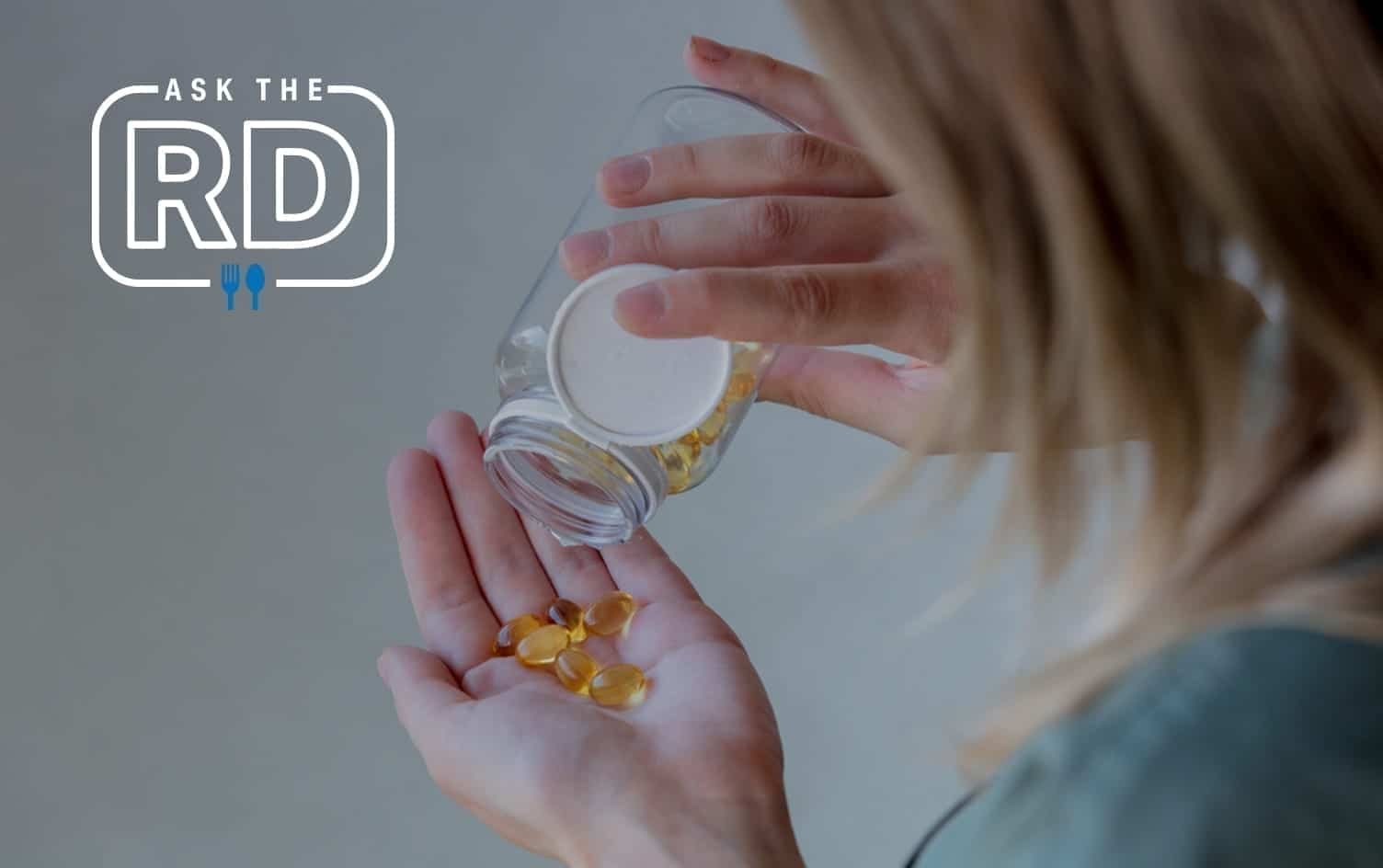
Over the counter (OTC) vitamins and minerals and gut-friendly supplements like probiotics increasingly line pharmacy and grocery store shelves. However, a supplement considered “good for you” can vary greatly from person to person and depend on individual factors like age, sex, health history and lifestyle. It’s important to seek laboratory values and speak with a healthcare professional before trying a new vitamin or probiotic.
That said, here is what to keep in mind for generally healthy individuals:
A WELL-BALANCED DIET IS KEY
If you are consuming a plant-forward diet rich in fruits, vegetables, whole grains, legumes, beans, nuts, seeds and lean proteins, chances are you’re getting all of the vitamins and minerals you need. In this case, a multivitamin is likely unnecessary — a nourishing diet focused on whole foods should always be a priority.
OVER-THE-COUNTER VITAMINS
Over-the-counter vitamins can run the gamut from an all-inclusive multivitamin to individual vitamins and minerals, like vitamin C, D, zinc, calcium and B complex, to name a few.
A vitamin supplement may be a good choice if you are deficient or at risk for deficiency for various vitamins and minerals, based on lab results obtained at a doctor or dietitian’s office, your sex, stage in life and/or your lifestyle.
For example, a vegetarian woman of childbearing age may want to have her iron levels checked periodically to make sure she’s not deficient, and if she is, speak with her doctor or dietitian about supplementation. Similarly, a strict vegan may need to take a B12 supplement regularly to prevent deficiency, since it’s hard to obtain B12 from vegan foods.
Most individuals may benefit from taking a vitamin D supplement since it’s a common deficiency (especially during the winter months, when we are less likely to be outside and the sunlight is lacking). While it is possible to increase your vitamin D levels through diet, it’s not found in as many foods. Postmenopausal women at a higher risk for bone loss may also benefit from a vitamin D supplement and there are other cases of vitamin and mineral malabsorption that can result from various gastrointestinal conditions, surgeries or diseases, which can benefit from supplements but call for close monitoring and supervision from a healthcare team.
If your diet is inconsistent or lacking in a variety of foods, a multivitamin may be a good “insurance policy” to ensure your body is getting what it needs while you work on improving your diet.
PROBIOTIC SUPPLEMENTS
Probiotics are formulations of healthy bacteria similar to those found in your gut and may help promote a healthy and diverse gut microbiota. The gut is an essential part of the immune system, hormone production and digestive system (it helps deliver nutrients broken down from foods to the rest of the body), which is why a healthy gut microbiome is so important. The bacteria in our gut feeds off of prebiotics, a type of fiber found in plant foods, to multiply and diversify. What’s more, probiotics are found in foods like yogurt, sauerkraut and kimchi, which can have direct benefits on gut bacteria as well.
It is not required that you take a probiotic supplement, especially if you’re eating a variety of plant foods and probiotic sources. However, various probiotic supplements have been found to be beneficial in those with certain GI disorders (like IBS), as well as those whose gut bacteria have been compromised by persistent lack of sleep, stress or taking antibiotics. There are many different probiotic strains, but the ones that have been studied the most are lactobacillus, bifidobacterium and saccharomyces boulardii. If you decide to try a probiotic supplement, look for at least one of those strains that has also been third-party tested.
These probiotic strains may have varying benefits for the body — from relieving GI symptoms like constipation and diarrhea to improving cognitive function. If you are looking to take a probiotic for a specific condition or concern, it could be helpful to see a registered dietitian to determine if there is a specific strain that can be beneficial for your individual needs.
THE BOTTOM LINE
There is no one size fits all OTC supplement or probiotic recommendation. Consider your diet as a whole and whether you’re in a population that might be prone to a certain deficiency. Further testing and guidance from a healthcare professional can provide important individualized guidance.
Unlock an experience that’s like having a dietitian, trainer and coach — right at your fingertips. Go Premium for expert guidance and exclusive tools that will help you reach your personal health goals.




